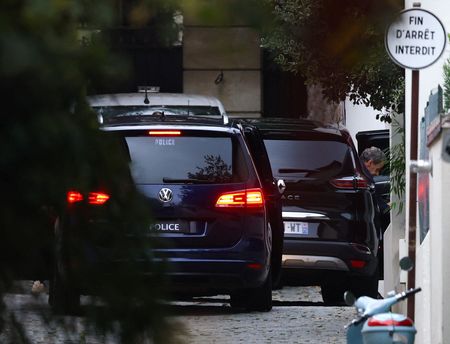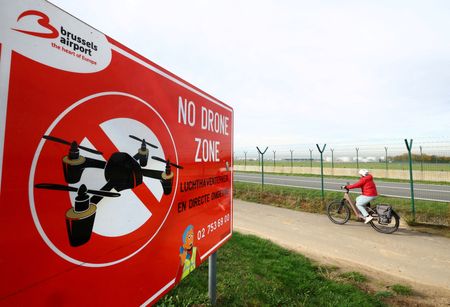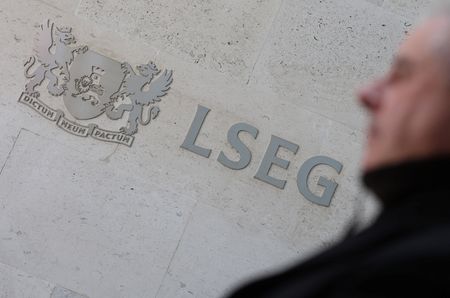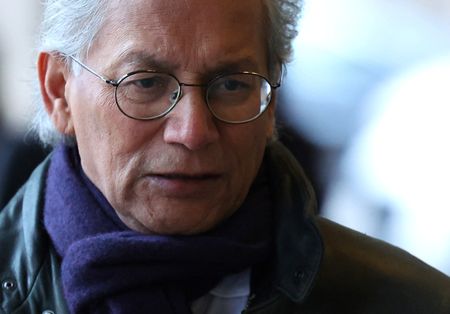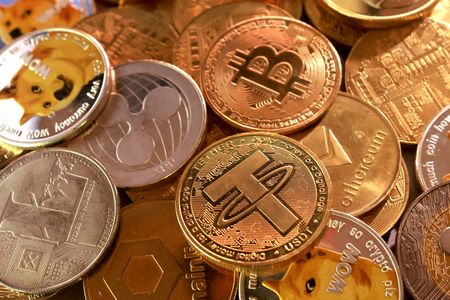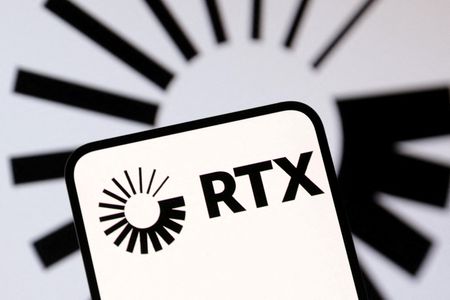By Max Hunder
KYIV (Reuters) -Ukraine’s anti-corruption bureau announced a vast investigation into the country’s energy sector on Monday, alleging a kickback scheme of $100 million involving the state nuclear power company.
The bureau, a state agency that operates independently of the government, made the announcement as Ukraine braces for winter with its power sector under frequent fire by Russia and regularly facing power outages.
It alleged on social media that behind the scheme was a “high-level criminal organisation” led by a businessman and including a former adviser to the energy minister, nuclear power operator Energoatom’s head of security and four “back office” workers.
“In total, approximately 100 million USD passed through this so-called laundromat,” the agency said.
None of the individuals was named in the statement.
ENERGOATOM SAYS OFFICIALS SEARCHING ITS OFFICES
Energoatom said in a statement on social media that anti-corruption officials were conducting searches in its offices on Monday, and it was cooperating with the investigation.
Ukraine’s energy ministry did not immediately reply to requests for comment.
Ukraine’s power system has been significantly damaged by a campaign of Russian bombardment this autumn, causing power cuts across the country as Moscow presses on with its war against its smaller neighbour.
Russia has not hit nuclear plants, but has hit substations connected to them, according to Ukrainian authorities.
The bureau published photographs of thick bundles of Ukraine’s hryvnia currency, U.S. dollars and euros stuffed into bags and stacked on a table. It did not specify who they belonged to.
“The minister’s adviser and the director of security at Energoatom took control of all the company’s purchases and created conditions under which all Energoatom’s contractors had to pay illegal benefits,” NABU’s chief detective, Oleksandr Abakumov, said.
He alleged that those involved in the scheme discussed raising the kickback rate to 15% in October during the construction of protective structures at the Khmelnytskyi nuclear power plant.
KICKBACK PAYMENTS
According to investigators, Energoatom’s counterparties were forced to pay kickbacks of 10-15% to avoid having payments for services or goods blocked, or losing their supplier status.
“A strategic enterprise with an annual income of over 200 billion hryvnias ($4.79 billion) was managed not by the proper officials, but by third parties who had no formal authority,” the statement said.
The anti-corruption bureau said it had conducted 70 searches and all its detectives had been involved in an investigation that has lasted 15 months and gathered 1,000 hours of audio recordings.
Opposition lawmaker Yaroslav Zheleznyak, a prominent champion of the anti-corruption agency, said he had tabled a motion in parliament to seek the dismissal of Ukraine’s justice and energy ministers. The ministers did not immediately comment.
In July 2025, large protests and international criticism forced President Volodymyr Zelenskiy to reverse course and restore the independence of Ukraine’s two main anti-corruption agencies, following a government move to rein in their powers.
Eradicating graft and shoring up the rule of law are key requirements for Kyiv to join the European Union, which Ukrainians see as critical to their future as they fend off a Russian invasion.
($1 = 41.7754 hryvnias)
(Reporting by Anastasiia Malenko and Yuliia Dysa, writing by Max Hunder; Editing by Toby Chopra, Alexandra Hudson)


